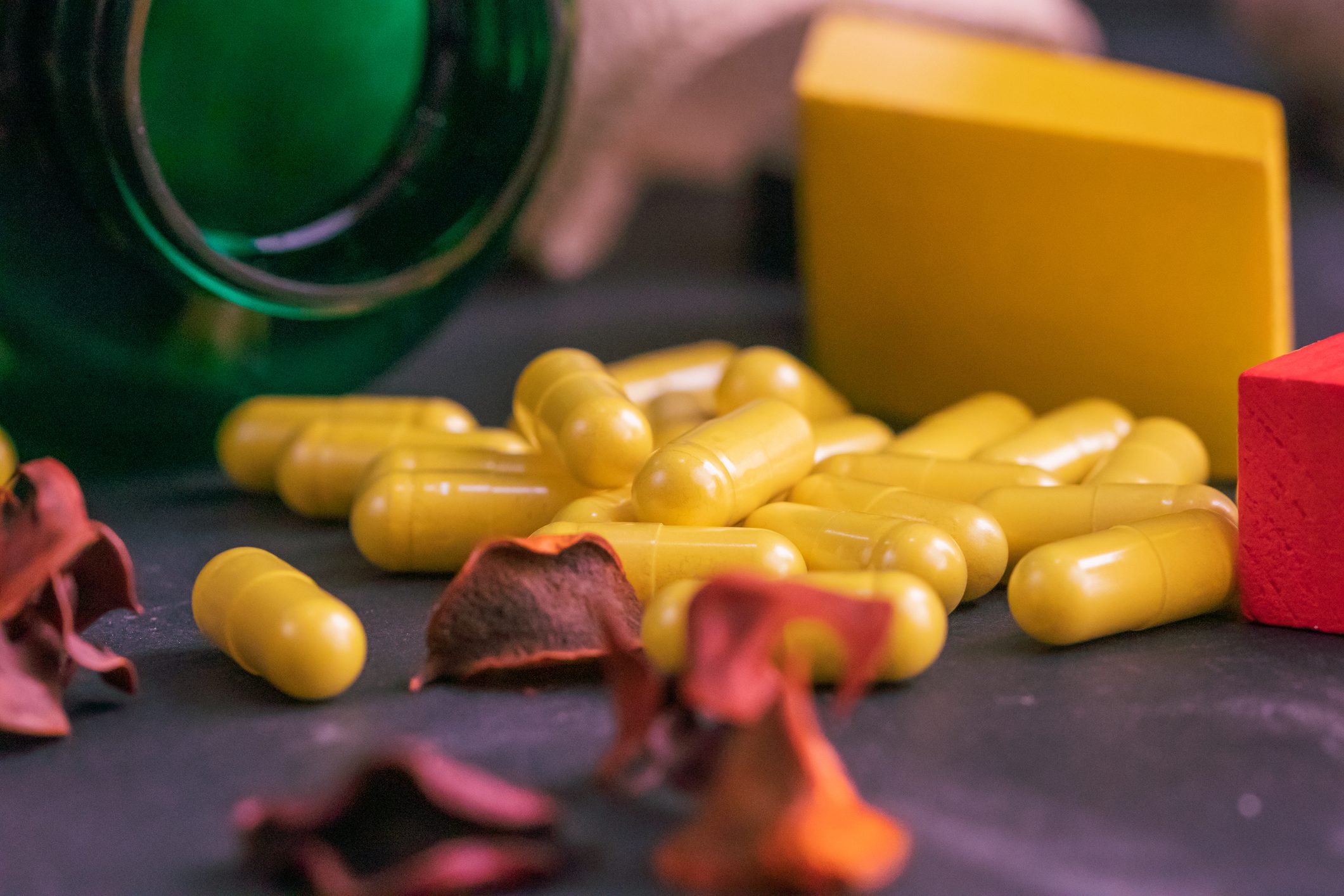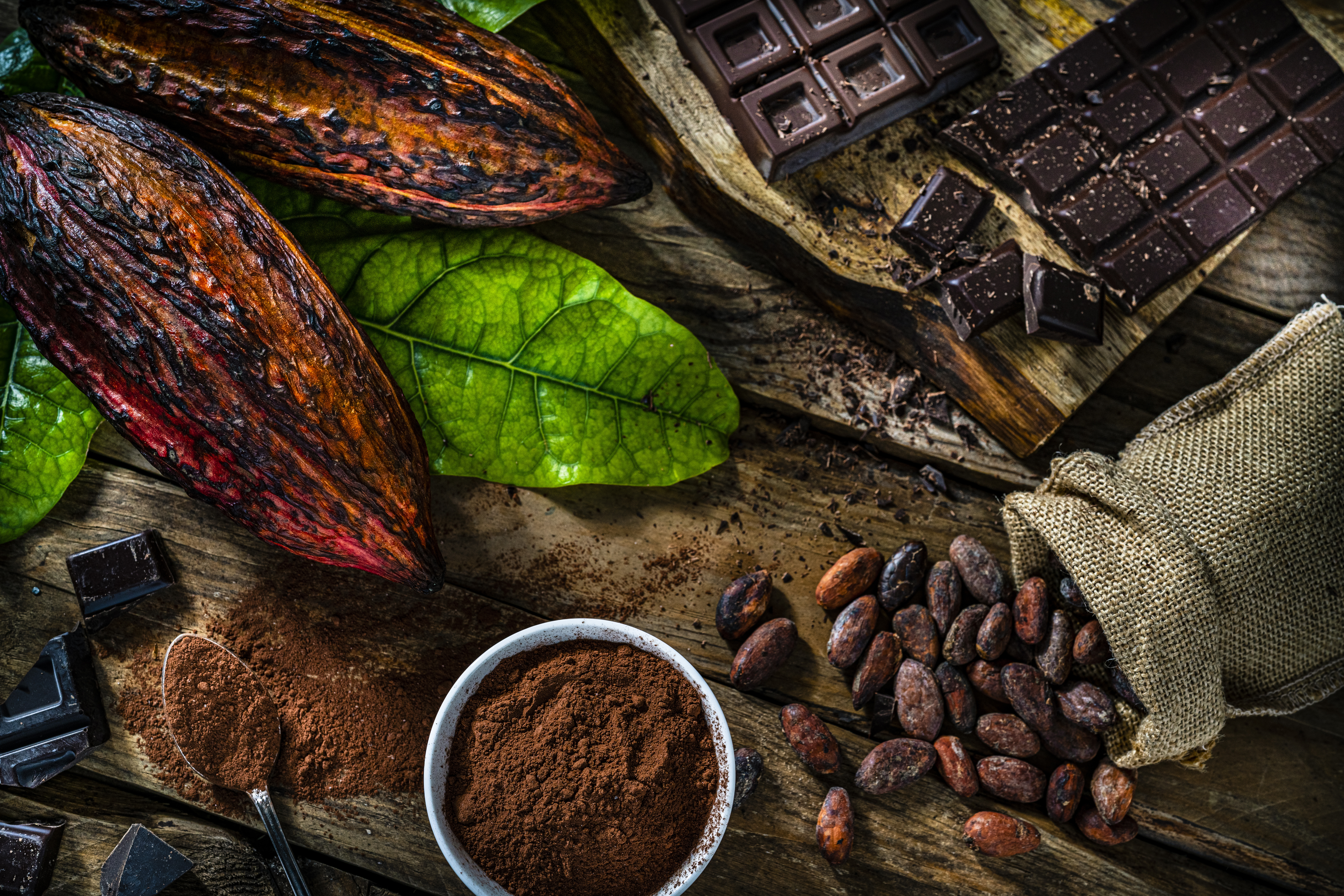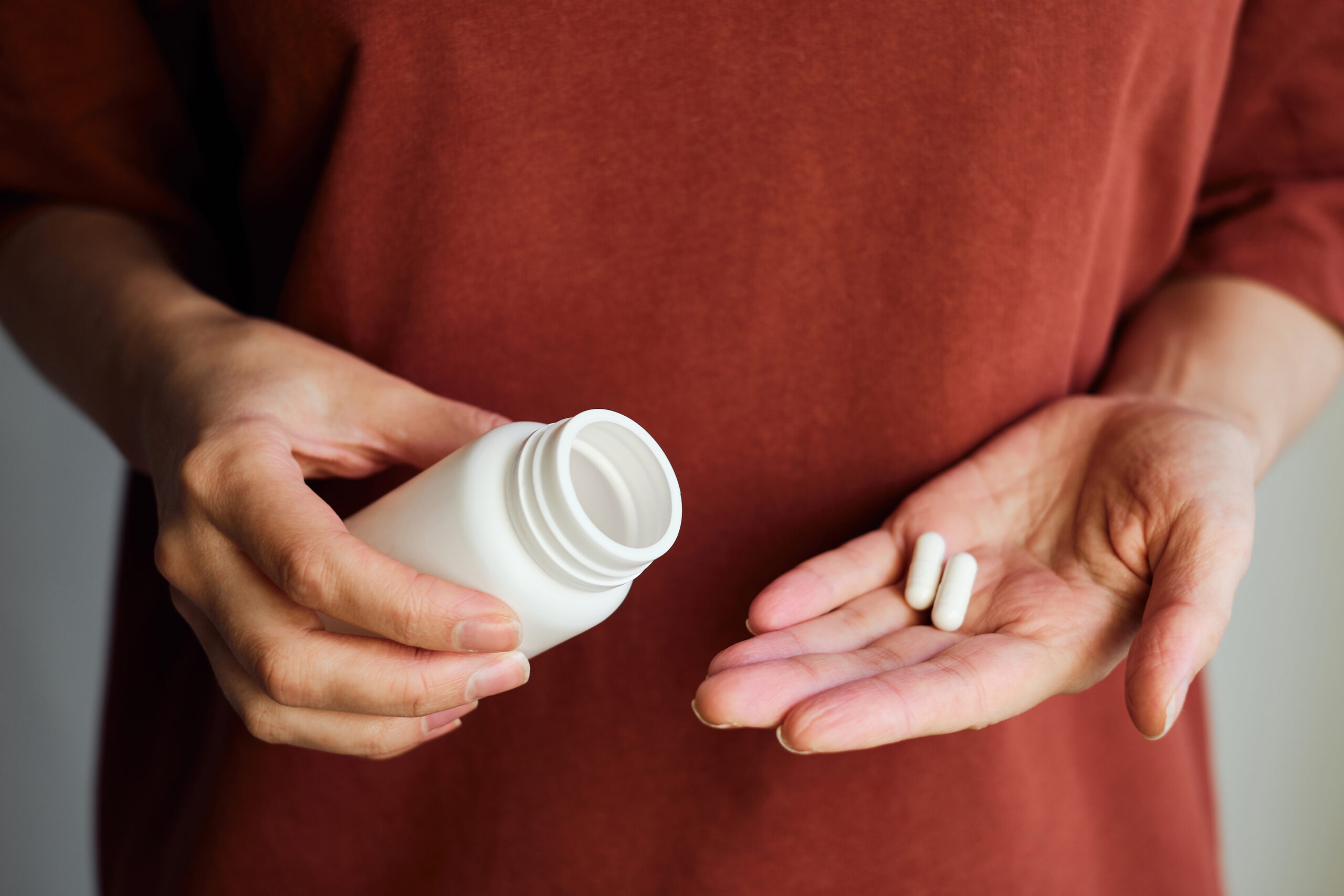Over 37 million Americans have diabetes, and 90-95% of them have type 2 diabetes.1 Researchers expect that number to skyrocket by 2040, making type 2 diabetes a worldwide crisis.2 Even if you don’t have full-blown diabetes, being insulin resistant can increase your risk of developing this condition or other problems like heart disease.
Insulin resistance occurs when your cells “resist” insulin’s signal. As a result, this hormone has a hard time delivering blood sugar (or glucose) into your cells, which use that glucose for energy. When your cells can’t receive glucose, blood-sugar levels can stay dangerously high. Your body compensates by releasing more insulin, but your cells still don’t get the message.
While exact numbers vary, research shows that up to 46.5% of adults worldwide are insulin resistant.3
We’re always looking for solutions to prevent or reverse insulin resistance and type 2 diabetes. One proposed solution is Ozempic, an injectable prescription drug that works by mimicking the action of a naturally occurring hormone called glucagon-like peptide-1 (GLP-1).
Your gut releases GLP-1 after eating, which stimulates insulin to help:
- Regulate blood-sugar levels
- Reduce glucagon (a hormone that increases blood sugar)
- Slow down the emptying of your stomach
In other words, Ozempic helps your body better regulate blood sugar and insulin levels. While it can be effective, this drug isn’t without its problems. Side effects include nausea, vomiting, diarrhea, and stomach pain. Others report skin irritation, gallbladder issues, and very low blood-sugar levels.
What if you could take a supplement that delivers the blood-sugar benefits without the drawbacks of prescription drugs? That’s the promise of berberine.
Berberine for Blood-Sugar Balance
Berberine is a botanical extract derived from several plants, including barberry, goldenseal, and Oregon grape. Chinese and Ayurvedic medicine have used berberine for over 2,000 years.4 They knew what science confirms today: Berberine can help manage blood-sugar levels and much more.
Berberine influences multiple pathways in glucose metabolism to support healthy blood sugar and insulin levels. One review of 46 studies concluded berberine showed strong evidence and safety to manage type 2 diabetes.5
But this compound shows significant promise against insulin resistance, too. Among those benefits, berberine can:
- Prevent development of atherosclerosis (plaque buildup in your arteries), type 2 diabetes, and obesity
- Lower the risk of insulin resistance
- Improve insulin secretion6
5 Ways Berberine Can Help Balance Blood Sugar
We’re still learning how berberine can improve blood-sugar control. Scientists have a few ideas, which (as you’ll see) can also benefit other conditions:
- Berberine activates an enzyme called AMP-activated protein kinase (AMPK), which plays a crucial role in blood-sugar uptake and metabolism in cells (including muscle cells). Animal studies show that berberine enhances AMPK activation as well as autophagy, a “spring cleaning” for your cells.7
- Berberine supports healthy gut bacteria, which can help improve insulin sensitivity.8 Berberine’s impact on gut health can positively impact a wide range of conditions like obesity, diabetes, cancer, and inflammatory disease conditions, and can improve cholesterol and triglyceride levels.9
- Even when blood-sugar levels are already high, your liver can produce excess glucose through a regulatory process called gluconeogenesis. Berberine helps reduce liver glucose production and lowers overall blood-sugar levels. Berberine’s liver-supporting abilities include protecting against non-alcoholic fatty liver disease (NAFLD), where dangerous fat accumulates in your liver.10
- Chronic inflammation often accompanies insulin resistance and impaired blood-sugar control. Berberine has anti-inflammatory properties that may help alleviate this inflammation and better manage blood-sugar levels.11
- Berberine can boost antioxidant enzymes that protect against oxidative stress, reducing cell damage and supporting the little energy plants in your cells called mitochondria.12
Altogether, berberine provides wide-reaching impact on blood-sugar balance, helping to reverse or reduce the risk of insulin resistance and type 2 diabetes.
Other Benefits of Berberine
The risk of insulin resistance increases with age, setting the stage for other problems including type 2 diabetes and other diseases.13 With that in mind, I’ve found that almost everyone benefits from a berberine supplement.
Its anti-inflammatory and antioxidant abilities also make it effective for other conditions, including:
- Healthy lipid metabolism. That’s a fancy term to describe how well your body manages fat on a physiological level, including how fat is absorbed, stored, and utilized. Berberine can help build cell membranes (which are made up of about 50% fat), create energy, and support all the many other functions fats provide in your body.14
- Heart health. Berberine can support healthy vessels that transport blood to and from your heart. This compound also helps your body better manage the damaging chronic inflammation, which left unchecked, can lead to heart disease.15
- Brain health. Chronic inflammation and oxidative stress are key factors in Alzheimer’s disease and other forms of cognitive decline. Berberine is neuroprotective, meaning it protects nerve cells from damage. Research shows that it can even help manage depression.16
- Weight loss. Berberine’s effect on activating the enzyme AMPK can also help with weight management. How? Because AMPK helps regulate metabolism and fat storage. As a result, this compound shows promise to prevent or reduce obesity. 17
What You Should Know About Supplementing With Berberine
Blood-sugar balance is the best way to support healthy hormones, maintain steady energy and focus, reach your goal weight, build muscle, and so much more. While I’m not entirely opposed to using prescription drugs like Ozempic to manage blood sugar, I’ll always prefer natural, science-supported solutions such as berberine.
Even with the healthiest diet, blood-sugar imbalances become more common as we get older. Considering how effective berberine is for blood-sugar support, heart health, and so much more, berberine has become my go-to supplement—and the one I highly recommend for anyone looking for a safe, effective alternative to prescription drugs like Ozempic.
Berberine works synergistically with other nutrients like alpha-lipoic acid (ALA), a molecule that can help support blood-sugar metabolism and antioxidative status. I couldn’t find a supplement that combined both nutrients, so I created my own.
Blood Sugar Support combines 400 mg of berberine with 100 mg of ALA in one easy-to-take capsule to support*:
- Metabolic health
- Blood sugar metabolism
- Cardiovascular health
- A normal inflammatory response
- Brain health
- Blood vessel health
- Antioxidative enzymes
Blood Sugar Support is gluten-free, dairy-free, soy-free, non-GMO, with the stringent standards you expect from all my products.*
Of course, berberine alone isn’t going to work magic. Steady blood-sugar levels start with eating by the plate. Strength training, great sleep, stress management, and the right nutrient support also play huge roles in balancing blood sugar . When you’re doing all that, a high-quality berberine supplement will complement your efforts.
Berberine’s ability to lower blood-glucose levels may mean you need to modify your medications, but never do this on your own. Talk with your healthcare practitioner about using berberine and how it may interact with any medications you’re using.
References:
- Centers for Disease Control and Prevention: Type 2 Diabetes
- Tönnies T, Röckl S, Hoyer A, Heidemann C, Baumert J, Du Y, Scheidt-Nave C, Brinks R. Projected number of people with diagnosed Type 2 diabetes in Germany in 2040. Diabet Med. 2019 Oct;36(10):1217-1225. doi: 10.1111/dme.13902. Epub 2019 Feb 13. PMID: 30659656.
- Fahed M, Abou Jaoudeh MG, Merhi S, Mosleh JMB, Ghadieh R, Al Hayek S, El Hayek Fares JE. Evaluation of risk factors for insulin resistance: a cross sectional study among employees at a private university in Lebanon. BMC Endocr Disord. 2020 Jun 10;20(1):85. doi: 10.1186/s12902-020-00558-9. PMID: 32522257; PMCID: PMC7288486.
- Feng X, Sureda A, Jafari S, Memariani Z, Tewari D, Annunziata G, Barrea L, Hassan STS, Šmejkal K, Malaník M, Sychrová A, Barreca D, Ziberna L, Mahomoodally MF, Zengin G, Xu S, Nabavi SM, Shen AZ. Berberine in Cardiovascular and Metabolic Diseases: From Mechanisms to Therapeutics. Theranostics. 2019 Mar 16;9(7):1923-1951. doi: 10.7150/thno.30787. PMID: 31037148; PMCID: PMC6485276.
- Guo J, Chen H, Zhang X, Lou W, Zhang P, Qiu Y, Zhang C, Wang Y, Liu WJ. The Effect of Berberine on Metabolic Profiles in Type 2 Diabetic Patients: A Systematic Review and Meta-Analysis of Randomized Controlled Trials. Oxid Med Cell Longev. 2021 Dec 15;2021:2074610. doi: 10.1155/2021/2074610. PMID: 34956436; PMCID: PMC8696197.
- Och A, Och M, Nowak R, Podgórska D, Podgórski R. Berberine, a Herbal Metabolite in the Metabolic Syndrome: The Risk Factors, Course, and Consequences of the Disease. Molecules. 2022 Feb 17;27(4):1351. doi: 10.3390/molecules27041351. PMID: 35209140; PMCID: PMC8874997.
- Jin Y, Liu S, Ma Q, Xiao D, Chen L. Berberine enhances the AMPK activation and autophagy and mitigates high glucose-induced apoptosis of mouse podocytes. Eur J Pharmacol. 2017 Jan 5;794:106-114. doi: 10.1016/j.ejphar.2016.11.037. Epub 2016 Nov 22. PMID: 27887947.
- Zhang L, Wu X, Yang R, Chen F, Liao Y, Zhu Z, Wu Z, Sun X, Wang L. Effects of Berberine on the Gastrointestinal Microbiota. Front Cell Infect Microbiol. 2021 Feb 19;10:588517. doi: 10.3389/fcimb.2020.588517. PMID: 33680978; PMCID: PMC7933196.
- Habtemariam S. Berberine pharmacology and the gut microbiota: A hidden therapeutic link. Pharmacol Res. 2020 May;155:104722. doi: 10.1016/j.phrs.2020.104722. Epub 2020 Feb 24. PMID: 32105754.
- Koperska A, Wesołek A, Moszak M, Szulińska M. Berberine in Non-Alcoholic Fatty Liver Disease-A Review. Nutrients. 2022 Aug 23;14(17):3459. doi: 10.3390/nu14173459. PMID: 36079717; PMCID: PMC9459907.
- Gong M, Duan H, Wu F, Ren Y, Gong J, Xu L, Lu F, Wang D. Berberine Alleviates Insulin Resistance and Inflammation via Inhibiting the LTB4-BLT1 Axis. Front Pharmacol. 2021 Nov 4;12:722360. doi: 10.3389/fphar.2021.722360. PMID: 34803675; PMCID: PMC8599302.
- Yuan H, Wang B, Ye Z, Li S. Berberine Alleviates the Damage, Oxidative Stress and Mitochondrial Dysfunction of PC12 Cells Induced by High Glucose by Activating the KEAP1/Nrf2/ARE Pathway. Mol Biotechnol. 2023 Feb 3. doi: 10.1007/s12033-022-00651-5. Epub ahead of print. PMID: 36737555.
- Shou J, Chen PJ, Xiao WH. Mechanism of increased risk of insulin resistance in aging skeletal muscle. Diabetol Metab Syndr. 2020 Feb 11;12:14. doi: 10.1186/s13098-020-0523-x. PMID: 32082422; PMCID: PMC7014712.
- Yu M, Alimujiang M, Hu L, Liu F, Bao Y, Yin J. Berberine alleviates lipid metabolism disorders via inhibition of mitochondrial complex I in gut and liver. Int J Biol Sci. 2021 Apr 12;17(7):1693-1707. doi: 10.7150/ijbs.54604. PMID: 33994854; PMCID: PMC8120465.
- Cicero AF, Baggioni A. Berberine and Its Role in Chronic Disease. Adv Exp Med Biol. 2016;928:27-45. doi: 10.1007/978-3-319-41334-1_2. PMID: 27671811.
- Och A, Och M, Nowak R, Podgórska D, Podgórski R. Berberine, a Herbal Metabolite in the Metabolic Syndrome: The Risk Factors, Course, and Consequences of the Disease. Molecules. 2022 Feb 17;27(4):1351. doi: 10.3390/molecules27041351. PMID: 35209140; PMCID: PMC8874997.
- Ilyas Z, Perna S, Al-Thawadi S, Alalwan TA, Riva A, Petrangolini G, Gasparri C, Infantino V, Peroni G, Rondanelli M. The effect of Berberine on weight loss in order to prevent obesity: A systematic review. Biomed Pharmacother. 2020 Jul;127:110137. doi: 10.1016/j.biopha.2020.110137. Epub 2020 Apr 27. PMID: 32353823.
*These statements have not been evaluated by the Food & Drug Administration. Products mentioned are not intended to diagnose, treat, cure, or prevent any disease. The views in this blog by JJ Virgin should never be used as a substitute for professional medical advice. Please work with a healthcare practitioner concerning any medical problem or concern.







